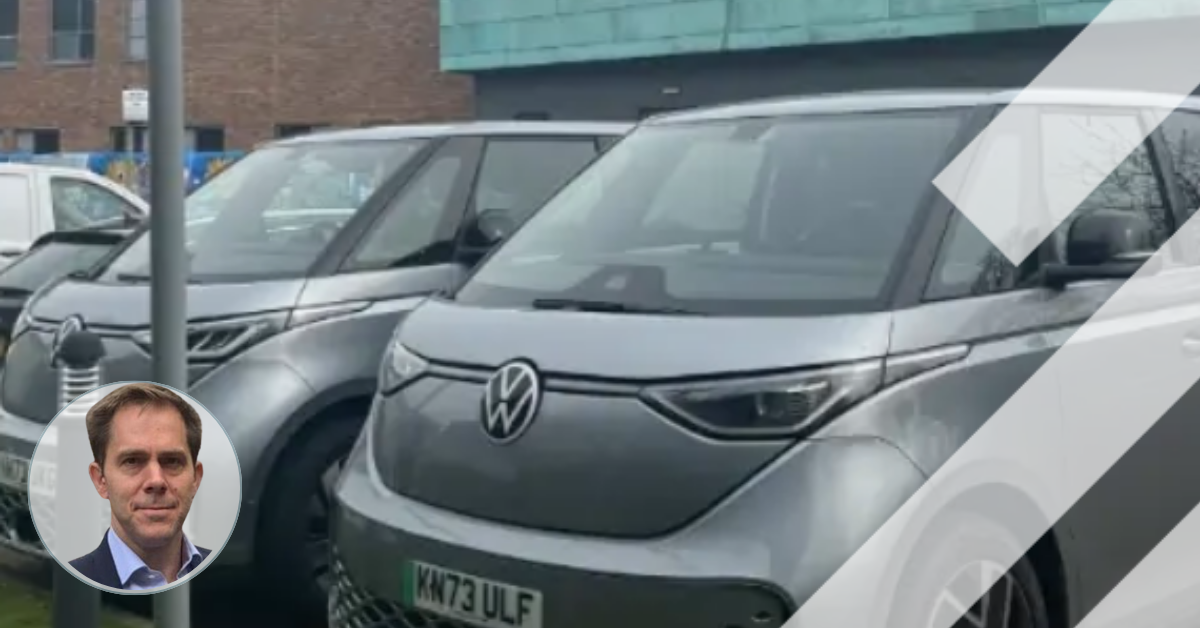5 minutes with… Gustavo Garcia, a Computer and Systems Management Engineer.
Intertraffic: Can you briefly introduce yourself and explain your current role in the mobility industry? How did your career path lead you to this position?
Gustavo: My name is Gustavo Adolfo García Núñez. I am a Computer and Systems Management Engineer. I consider myself a person who is passionate about sports, especially football, which has given me a strong foundation to be highly competitive in the things I care about, like my work.
I joined CUBIC in 2022 after working for nearly 11 years at Intel. Thanks to that experience, I have extensive knowledge in computing, data management, and environments related to the Internet of Things and Artificial Intelligence, concepts that are currently being used to manage traffic in many cities around the world.
Intertraffic: What key developments in the mobility industry have most influenced your work and approach? Can you share any specific experiences that shaped your perspective on transportation?
Gustavo: I’m originally from Mexico City and have always been used to heavy traffic. For that reason, I didn’t realize in the past how a city can undergo large-scale population growth. Four years ago, during the pandemic, I decided to move to the city of Mérida, Yucatán, where life is much more peaceful. However, over the years, it has become a very attractive place to live for people from other parts of Mexico and even from abroad, thanks to its high quality of life and safety.
So many people have moved here that Mérida was quickly faced with a major challenge in how to manage traffic. Fortunately, this has been handled successfully, and I’m proud to know that I’ve contributed to making that possible, thanks, of course, to the technologies developed by CUBIC Transportation Systems.
Intertraffic: What do you see as the biggest challenges facing the mobility sector today, particularly in the Americas, and how are you working to address them?
Gustavo: It is clear that the biggest challenge is to incorporate technology that helps mitigate traffic congestion, as many cities in Latin America experience chaos at all hours, which significantly hinders urban productivity. In addition to that, public transportation systems in many cases are outdated and insufficient.
I believe that, as much as possible, there should be an effort to adopt modern technologies that allow all types of people to move more efficiently to reach their destinations. And this doesn't only apply to those who travel by car or public transportation, it also includes those who use bicycles and other modes of transport.
Intertraffic: Looking ahead, what innovations or technologies do you believe will have the greatest impact on the future of urban mobility?
Gustavo: I believe the electric era is arriving with great momentum, and in a future that is increasingly near, mobility will be driven by electric vehicles, automation, and a variety of transportation options that promote greater efficiency, sustainability, and lower global emissions.
I envision a more seamless and intelligent urban mobility system, where people can move efficiently, even with transportation methods that make it less necessary to rely on private cars for every trip. Sustainability will enable traffic to be managed through smart technological systems, and thanks to the interconnection of multiple transportation modes, people will be able to travel safely and quickly to any destination.
Intertraffic: How do you see the integration of sustainability and technology evolving in the mobility sector? Are there any emerging trends you’re particularly excited about?
Gustavo: Undoubtedly, the more we use electricity generation methods that do not produce a carbon footprint, the more we will see the adoption of smart electric transportation technologies around the world. There is still much to be done in this area, but as the costs of energy generation technologies continue to decrease, it will become more accessible for many cities to implement new methods of transportation and traffic management.
Intertraffic: What role do collaboration and partnerships play in advancing mobility solutions, and how can stakeholders across industries work together to drive positive change?
Gustavo: Government support and private sector involvement are fundamental to the advancement of these initiatives, as both sides must do their part to make things happen. It is clear that, in order to attract investment, it must be demonstrated that the technology is effective. On the other hand, a strong commitment from any government is essential, as the true beneficiaries of cities adopting these types of technological solutions are the citizens themselves.
If partnerships between governments and private companies are established and both contribute, meaningful change can happen in any city.
Intertraffic: As a leader in the mobility industry, what advice would you give to emerging professionals looking to make an impact in this rapidly evolving field?
Gustavo: My best advice is that, before making any decisions, the specific case should be carefully analyzed, supported by data analysis and testing of potential solutions that could offer more efficient methods, whether for public transportation, mobility, or traffic management.
Personally, I’ve encountered cases in several states in Mexico where technology is acquired, and shortly after, it is either no longer used or becomes obsolete, while the original problem remains. Even worse, the process often has to start over from scratch, and this is largely due to a lack of long-term planning.
Intertraffic: Finally, what are your key priorities for the future of transportation, and how do you envision the mobility landscape evolving in the next five to ten years?
Gustavo: I believe the priority should be the adoption of sustainable artificial intelligence systems, combined with monitoring by trained personnel who can make real-time adjustments. While technology is a powerful tool that can help mitigate traffic chaos in large cities, human judgment remains essential for resolving certain situations where common sense makes all the difference.
With that combination, we will have the right solution.



